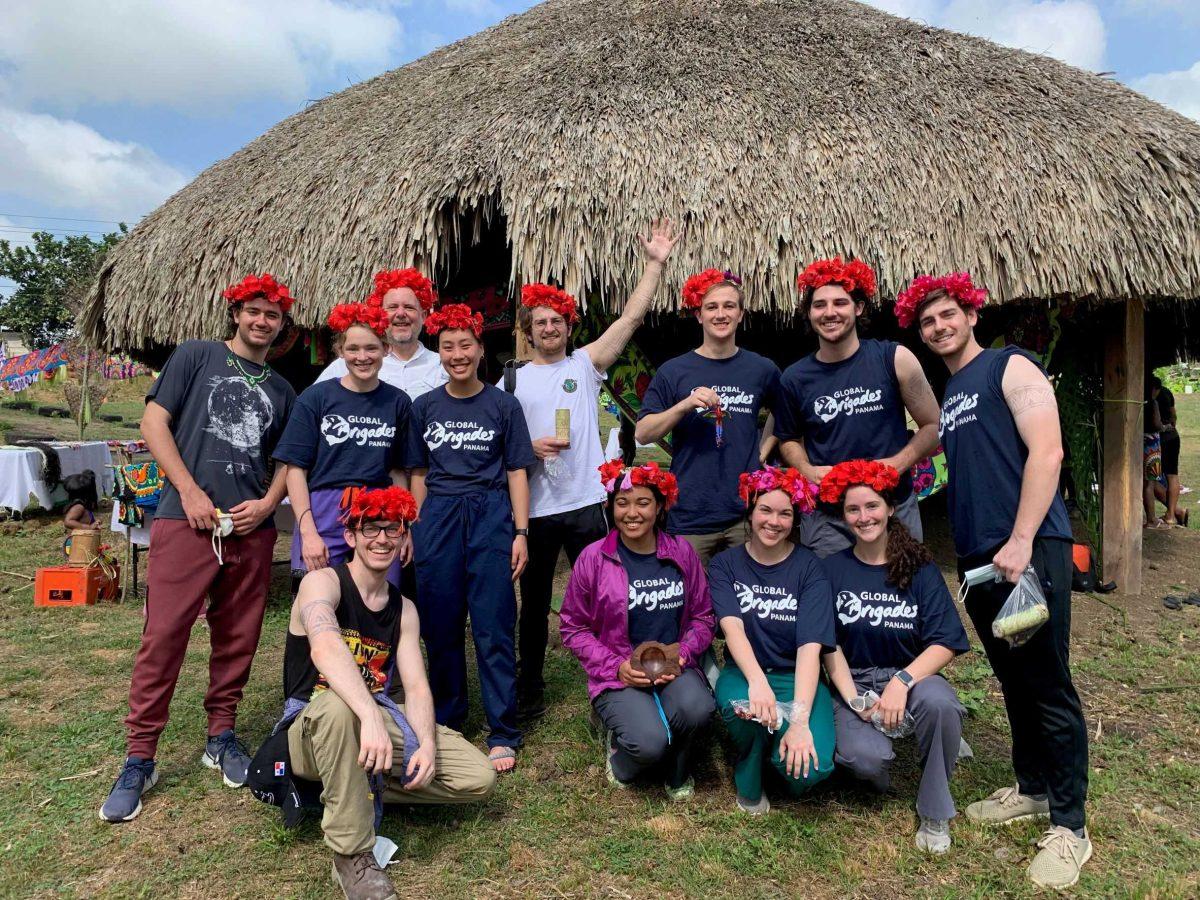The LSU chapter of the Global Water Brigades traveled to Panama from March 13 to March 19 to repair a water system for a rural indigenous community in Embera Puru in the Darjen region. This trip was part of a larger effort the Global Brigades is making to assist this impoverished area.
This community’s primary water system wasn’t working, and their secondary system was unclean and in disrepair. The unclean secondary system was their only source of water besides water shipments from the Panamanian government, but these shipments were sporadic and unreliable.
The Water Brigades is a part of the Global Brigades, a national organization that seeks to alleviate poverty in underdeveloped regions of the world and afford them more opportunities. The Water Brigades is a part of their effort to improve access to clean water in impoverished communities.
The LSU chapter of the Water Brigades was founded in fall of 2019 by chemical engineering senior Sarah Glass and biochemistry senior Blaire Peterson. Glass and Peterson are graduating, so they’re stepping down as president and vice-president.
The club was not able to make a trip in 2020 or 2021 due to COVID-19, making this year’s trip their first.
“It’s definitely a super welcoming club,” Glass said. “We want to help the community; we want to help other people, definitely with that core mindset of water sustainability. That’s what I’m super passionate about.”
The Water Brigades helped get Embera Puru’s secondary water system repaired. A Panamanian engineer coordinated the project to get the system running.
Glass said they focused on cleaning it out and reenforcing it. The water system was contaminated so it was providing dirty water.
Max Scheurich, president of the Water Brigades, said they cleared out the space around the groundwater sources to connect them with each other so the pumping system would be able to funnel it out during the wet season.
“When we had arrived, they had not had freshwater for 15 days; there was a problem with the plumbing and stuff like that,” Scheurich said.
Glass said the community’s primary water system still isn’t operational but other Brigades will be heading there soon to get it running again. Their primary system is supposed to be able to bring the water directly into their homes; the secondary system requires them to walk through the jungle to get the water.
“It was probably like an 8-minute walk, but it’s through jungle terrain,” Glass said. “We saw snakes, monkeys; we saw a tarantula that was super huge — just things you would not see in Louisiana.”
Glass said most of the community —about 400 people— spoke an indigenous language, so they had to travel with translators.
Scheurich said that the tribe they helped is one of five different native groups there that were originally from Columbia.
The vice president of the club, astronomy junior Ashley Patron, said that during the rest of the year when the club is not on a trip, they help local communities in Louisiana in the wake of hurricanes and flooding, repairing houses and other damaged areas.
Patron said they go on “Mini-Brigades” where they travel to an area in Louisiana and stay for several days to assist in repair and clean-up work. She said this helps the group bond in preparation for their bigger overseas trips.
The organization also works with other local service groups throughout the state in this work, including churches, Habitat for Humanity and the St. Bernard Project.
“We went to Lake Charles, we’ve reached out and worked in Port Sulfur, we’ve stayed in Houma for a few days and usually there’s some local volunteer initiative already and our club tries to connect with those people,” Patron said.








